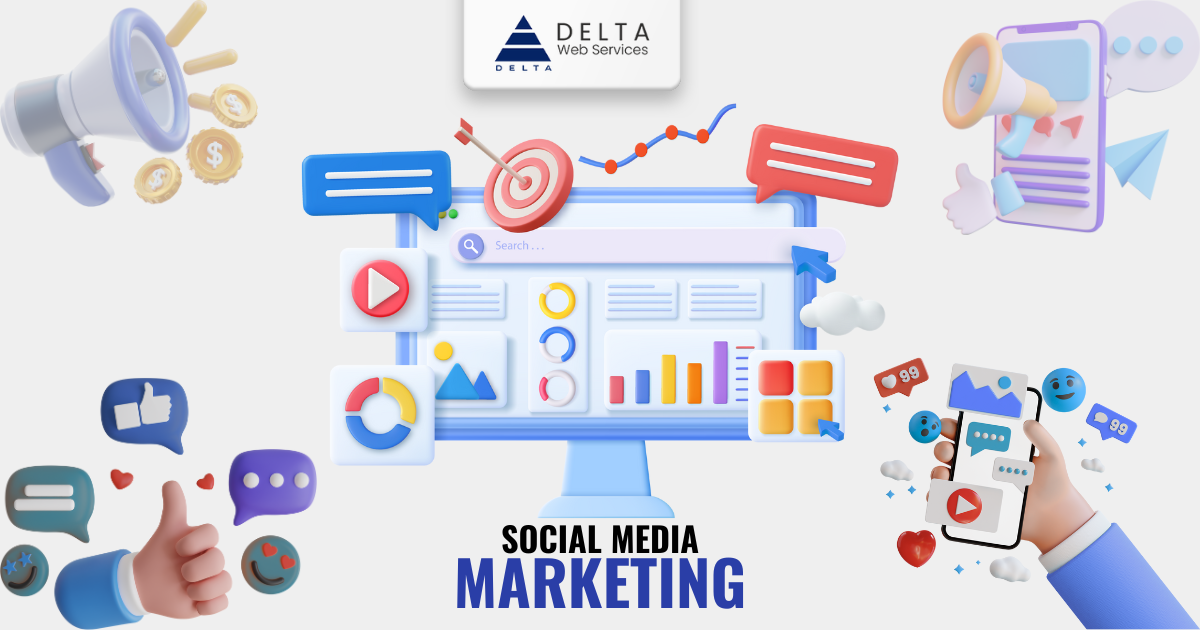Notifications

8 minutes, 7 seconds
-36 Views 0 Comments 0 Likes 0 Reviews

In today’s digital-first world, social media has evolved from a personal networking tool into a powerful business asset. From startups to global enterprises, businesses of all sizes are leveraging social platforms like Facebook, Instagram, LinkedIn, and Twitter (now X) to build brand awareness, connect with customers, and boost sales. But while the benefits of social media marketing are significant, the drawbacks are equally important to consider.
This blog explores the advantages and disadvantages of social media for businesses, helping you make more informed decisions about your digital marketing strategy.
One of the most significant benefits of social media is its ability to rapidly increase brand visibility. By consistently posting engaging content, sharing updates, and participating in trending conversations, businesses can introduce their brand to a wider audience.
Pro Tip: Use platform-specific features like Instagram Reels, YouTube Shorts, and LinkedIn Articles to reach new demographics organically.
Social media allows businesses to interact with customers in real time. Comments, shares, and direct messages create opportunities for meaningful conversations that humanize your brand and foster loyalty.
Example: Quick replies to questions on Twitter or personalized responses to Instagram comments can dramatically improve customer satisfaction.
Compared to traditional advertising, social media marketing is relatively low-cost — especially when you consider the organic reach and engagement you can gain with well-optimized posts.
Tip: Start with a small paid ad budget to test what works, and scale campaigns that perform well.
Social media platforms offer highly advanced ad targeting. You can filter audiences based on location, age, interests, behavior, and even job title (on LinkedIn). This ensures your ads reach the most relevant users.
Bonus: Retargeting ads let you reconnect with visitors who previously interacted with your brand but didn’t convert.
Social media platforms provide in-depth insights into how your content is performing. Metrics like reach, impressions, engagement rate, and click-throughs help you refine your strategy and make data-driven decisions.
When users click on the links you share through social posts or ads, you increase referral traffic to your website. A strong social presence also indirectly supports SEO by increasing brand signals and user interaction.
By monitoring your competitors’ social media activity, you can learn from their successes and mistakes. Tools like Sprout Social, Hootsuite, or native platform analytics allow businesses to benchmark performance.
Social media lets you respond quickly during a PR crisis. Timely, transparent updates help control the narrative and rebuild trust.
Example: A public apology or explanation pinned at the top of your Twitter feed can go a long way in damage control.
While social media offers immense potential, it also presents several challenges that businesses should not ignore.
Maintaining an active and engaging social media presence takes time. From creating content to responding to followers, it requires daily attention — which can be overwhelming for small teams.
Solution: Use social media management tools like Buffer or Later to schedule posts and streamline operations.
Unhappy customers can post negative reviews or comments, which may go viral. Unlike private emails, social complaints are out in the open and can damage your reputation.
Tip: Always respond to criticism professionally, and aim to resolve the issue publicly and politely.
Platform algorithms frequently change, affecting organic reach. What worked last month might not work today, forcing businesses to constantly adapt.
Challenge: Organic posts may get buried in followers’ feeds unless you use paid promotions or high-performing content formats.
Businesses are vulnerable to security threats such as account hacking, data leaks, or phishing. These can lead to reputational harm or even legal trouble.
Solution: Use two-factor authentication, regularly update passwords, and educate your team about social media security best practices.
While metrics like likes and shares are easy to track, measuring ROI (Return on Investment) from social media campaigns isn’t always straightforward — especially for brand awareness-focused strategies.
Tip: Track conversions using UTM parameters and link tracking to connect social actions with actual sales or leads.
Almost every business is on social media now. Standing out in a crowded feed is harder than ever, especially if you lack a unique voice or creative content.
Strategy: Focus on niche content, storytelling, and authentic engagement to break through the noise.
A poorly timed post, insensitive comment, or tone-deaf meme can go viral for all the wrong reasons. Once posted, content is hard to take back, and public backlash can damage your brand.
Advice: Have a content review process and crisis communication plan in place before publishing.
Absolutely — when done right. Social media can serve as a powerful growth engine for businesses, driving brand awareness, customer loyalty, and revenue. But like any tool, it requires strategic use, ongoing maintenance, and awareness of its limitations.
To maximize benefits and minimize risks:
Align your social strategy with business goals
Invest in quality content and community engagement
Stay updated with platform trends and algorithm changes
Monitor analytics and pivot when needed
For businesses willing to commit the resources and creativity, social media is more than worth the effort — it’s essential.
At Delta Web Services, we specialize in helping businesses grow through strategic, data-driven social media marketing. Let us help you craft campaigns that truly connect with your audience and drive measurable results.
Read Also :

